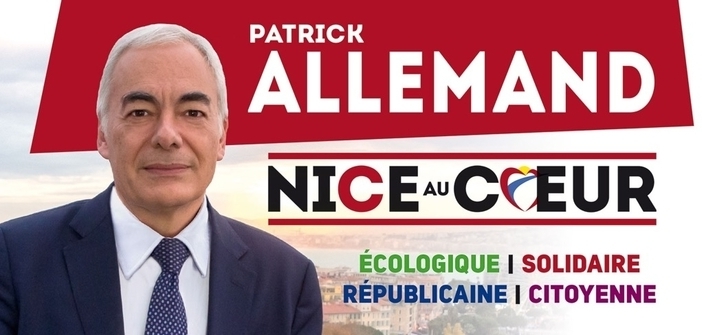For Patrick Allemand, head of the Nice au Cœur list, “Economic and tourist development must be compatible with the major challenge of ecological transformation. In this context, the economic development strategy must incorporate, at the level of attractiveness, how Nice will be connected to the rest of the world.”
Nice au Cœur aims to accelerate the construction of the New Railway Line (NLF) to offer a reliable and comfortable alternative to air travel for trips between French cities. We specifically call for negotiations to begin between the state and SNCF to revive night trains and, at the same time, reduce the number of shuttles between Nice and Orly. The freed-up slots could be used for other international flights without resorting to the extension of Terminal 2 at the Nice Côte d’Azur airport, to which we are opposed.
More than over-tourism, the greater danger we face is that of a mono-tourism industry. Senator Pierre Lafitte understood this well when he created Sophia-Antipolis, which was the first European technology park. Our tourism-driven economy is too vulnerable to economic, diplomatic, or even health crises, as demonstrated by the current coronavirus 19 crisis. From now on, a new economic policy must be developed based on the eco-valley.
However, even the president of the metropolis admits that there are currently 5,000 jobs, most of which are from transfers and do not represent a net creation (IBM, for example).
Indeed, to announce the “creatable” jobs, the purely theoretical method of ratios is used: one job per 10 m² of office space.
Regarding the Grand Arénas, it is an important planning issue with a construction program of 600,000 m² of floor space, including 350,000 m² of office space and 180,000 m² of housing, 35% of which is social rental.
Only a true sectoral economic strategy can enable job development, which, for now, remains virtual.
For this, Nice au Cœur proposes 10 strategic axes that consist of:
Developing a real revitalization plan for the Victorine studios, given that almost nothing has happened in the past two years, except an increase in rents that has driven out some occupying companies.
Specializing the Eco-Valley in the sustainable development economy and energy transition by supporting the emergence of this sector through public procurement, thanks to the energy renovation plan of all our kindergartens and primary schools.
Initiating, in connection with the University of Nice Côte d’Azur, a research and development center on alternative fuels.
Protecting agricultural land beyond Saint-Isidore to develop a truly efficient and viable peri-urban agriculture. Also, cultivate the flood-prone areas of our valleys.
Creating a new mixed activity, agri-energy, modeled on agri-tourism. Knowing that our current food autonomy is 2%, which is unacceptable, it will involve using photovoltaics in agricultural lands to produce clean energy and heat the soil to improve yields.
Developing the elderly economy (Silver economy) by creating, over the term of the mandate, 300 public EHPAD places and offering a facility for start-ups working in the fields of home automation, disability, in the eco-valley, in lieu of 27 Delvalle, a larger, more efficient structure aligned with our ambitions for this sector.
Developing the cultural economy. With its major international museum in the Palais des Expositions, Nice will have all the assets to achieve this.
Promoting craftsmanship and local productions by creating a “Made in Nice” label.
Halting the expansion of big-box stores and revitalizing small downtown businesses:
– By stopping the authorization of supermarket openings in Nice, as these supermarkets, franchises of large stores with an area of 200 to 800 m², harm local shops.
– By alternating pedestrianization of main shopping areas,
– And by relaxing paid parking rules: free parking on Saturday afternoons and prohibiting (to be included in the Moovia company’s specifications) ticketing a vehicle more than once a day.


